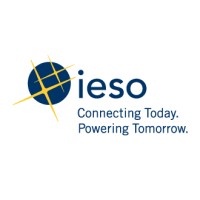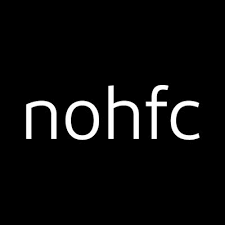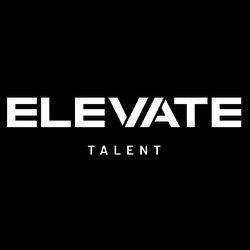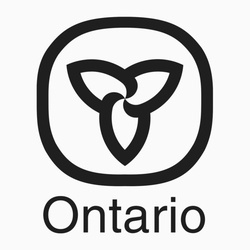
Closed
Brownfields Redevelopment Program - Rehabilitation
Last Update: December 4, 2025
Ottawa, ON
Supports redevelopment of contaminated sites for new residential use
Grant and Funding
At a glance
Funding available
Financing goals
Reduce the ecological footprint
Renovate your business/factory
Eligible Funding
- Maximum amount : 3,000,000 $
- Up to 50% of project cost
Timeline
- Receipt of requests is now closed
Eligible candidates
Eligible Industries
- Construction
- Real estate and rental and leasing
- Administrative and support, waste management and remediation services
Location
- Ottawa
Legal structures
- Non-profit
- Public or Parapublic institution
- For-profit business
- Sole proprietorship
- Social economy enterprise
Annual revenue
- All revenue ranges
Organisation size
- All organization sizes
Audience
- All groups
Non-profit candidates
Sector of operation
- All industries
Target groups
- All the groups
Revenue structures
- All structures
Scope
- All dimensions
Overview
The Brownfields Redevelopment Program - Rehabilitation provides up to 50% of eligible remediation costs, with a maximum grant of $3 million for standalone applications or up to $5 million when combined with other improvement programs (excluding Heritage CIP), to encourage the redevelopment of contaminated or underutilized properties into housing within Ottawa’s urban boundary. Eligible activities include environmental studies, remediation, clean fill placement, installation of environmental controls, ongoing monitoring, and environmental insurance premiums.
Activities funded
- Redevelopment of abandoned or underutilized properties affected by environmental contamination, incorporating a housing component.
- Remediation and rehabilitation of former industrial or commercial sites for new residential or mixed-use development.
- Projects involving the transformation of contaminated land, such as old landfills, gas stations, or factories, to support community revitalization.
- Construction of new residential units on previously contaminated land, following proper environmental cleanup procedures.
Eligibility
- The property must be located within the City of Ottawa’s urban boundary or designated villages.
- The applicant must be the registered or assessed owner, or tenant of the property, or a person assigned the right to receive the grant.
- The project must include a housing component.
- The site must be zoned to permit residential uses at the time of application, or if a Zoning Bylaw Amendment is needed, an application for the amendment must be complete before submitting.
- The applicant and their associated companies must not have been responsible for contaminating the site.
Who is eligible?
- Property owners, assessed owners, and tenants of lands and buildings within the City of Ottawa’s urban boundary and designated villages
- Developers or investors undertaking remediation and redevelopment of brownfields (abandoned, vacant, or underutilized sites with actual or perceived environmental contamination), including but not limited to former industrial or commercial properties
- Assignments by the registered owner or tenant to another party for eligible remediation activities
Who is not eligible
- Companies or applicants who, or whose associated companies, caused the contamination on the site.
- Lands owned by the Federal Crown, the Crown in right of Ontario (or another Province), or by Crown corporations (including, but not limited to, the National Capital Commission).
Eligible expenses
- Costs for environmental studies, remedial work plans, and risk assessments, including preparing a Record of Site Condition.
- Expenses related to environmental remediation, such as Phase II environmental site assessments, remedial work plans, and risk assessments not already covered.
- Costs for placing clean fill and site grading associated with remediation needs.
- Installation expenses for environmental and engineering controls or works as specified in approved remedial plans or risk assessments.
- Costs for monitoring, maintaining, and operating environmental and engineering controls or works as required by remedial plans or risk assessments.
- Premiums paid for environmental insurance directly related to site rehabilitation.
Eligible geographic areas
- Sites located within the City of Ottawa’s urban boundary and designated villages, as specified in the City’s Official Plan.
Selection criteria
- Exhaustiveness and compliance of the submitted documentation (environmental studies, work plans, cost estimates, architectural drawings, etc.).
- Suitability between the proposed costs and the cost difference between a development on industrial wasteland and a greenfield site.
- Ability to demonstrate that rehabilitation will lead to an increase in land value and an increase in property taxes (property tax uplift).
- Compliance with conditions (payment of taxes, absence of disputes or pending charges, compliance with municipal regulations, receipt of building permit).
- Completeness and accuracy of the file, including the absence of arrears or pending compliance orders.
How to apply
- Step 1: Pre-Consultation (optional)
- Request a pre-consultation with the City of Ottawa to identify required submission materials and confirm project eligibility.
- Step 2: Prepare Application Documents
- Ensure the site is zoned to permit residential uses. If a Zoning Bylaw Amendment is required, ensure your amendment application is deemed complete before proceeding.
- Collect all required documents, including:
- All environmental studies (Phase I and II Environmental Site Assessments, remedial action plan, risk assessment).
- Detailed work plan and cost estimate for eligible environmental remediation and risk assessment/risk management works prepared by a qualified person.
- Cost estimate for eligible rehabilitation costs, prepared by a bona fide contractor.
- Detailed architectural/design and/or construction drawings.
- Estimated post-project assessment value by a private sector property tax consultant.
- Completed grant application form.
- Step 3: Submit Application
- Submit the complete application package, including all supporting documentation, to the City of Ottawa's Brownfields Program contact: Kieran Watson, Coordinator, Front-Ending Agreements and Brownfields Program (613-580-2424, ext. 25470, kieran.watson@ottawa.ca).
- Step 4: Application Review
- The City reviews the submission package and provides comments as needed.
- Respond to any feedback and resubmit revised documents as requested by City staff.
- Be prepared for the possibility of a City-requested peer review of submission material, the cost of which is borne by the applicant.
- Step 5: Council Deliberation and Approval
- Once the submission package is accepted as complete and all outstanding items are addressed, City staff prepare a report for the Finance and Corporate Services Committee and City Council for review and final approval.
- If the application is subject to site plan control approval, Council deliberation occurs once such approval is granted or all major issues are resolved.
- Step 6: Legal Agreement Registration
- Following Council approval, a legal agreement is prepared by the City and registered on the property, outlining grant terms and conditions.
- Step 7: Complete Remediation and Compliance
- Obtain a building permit within 18 months of Council approval.
- Complete all rehabilitation work and submit a Record of Site Condition to the Ministry of Environment, Conservation and Parks and provide proof to the City.
- Satisfy all City requirements, including full payment of rehabilitation costs, resolution of liens or claims, and compliance with all relevant orders.
- Request a new property assessment from the Municipal Property Assessment Corporation, and ensure reassessment is added to the tax roll to demonstrate a tax increment.
- Pay all outstanding property taxes for at least one year after reassessment.
- Confirm that the building has been constructed according to permit specifications.
- Step 8: Request Rehabilitation Grant Payment
- Submit a written request to the City of Ottawa for the initial payment of the Rehabilitation Grant once all conditions are fulfilled.
- Step 9: Ongoing Compliance and Payment
- The City processes initial and annual grant payments until the funding cap or the 20-year limit is reached, whichever occurs first.
- Maintain ongoing compliance with all program requirements for the duration of the grant repayment period.
Additional information
- The City of Ottawa may conduct audits of approved studies or works at the applicant's expense.
- Applicants are responsible for all costs incurred, including those made in anticipation of a grant payment.
- The City reserves the right to discontinue programs at any time, but approved grants remain valid if all requirements are met.
- Site inspections may be carried out by City staff or agents as part of the application process.
Contacts
kieran.watson@ottawa.ca
613-580-2424
Ottawa, ON, Canada
Apply to this program
Frequently Asked Questions about the Brownfields Redevelopment Program - Rehabilitation Program
Here are answers to the most common questions about the Brownfields Redevelopment Program - Rehabilitation. This section explains what the program is, how much funding is available, eligibility requirements, application deadlines, and other important details to help you determine if this grant is right for your business.
What is the Brownfields Redevelopment Program - Rehabilitation?
How much funding can be received?
Who is eligible for the Brownfields Redevelopment Program - Rehabilitation program?
What expenses are eligible under Brownfields Redevelopment Program - Rehabilitation?
Who can I contact for more information about the Brownfields Redevelopment Program - Rehabilitation?
Where is the Brownfields Redevelopment Program - Rehabilitation available?
Is the Brownfields Redevelopment Program - Rehabilitation a grant, loan, or tax credit?
Apply to this program
More programs like this

Grant and FundingExpert AdviceOpen
Expanded Energy Management Program
Funding to strengthen facility energy management and efficiency initiatives

Grant and FundingClosed
INVEST North Program — Investment — Grow Stream
Financial help to grow a business in Northern Ontario

Grant and FundingClosed
Enabling Accessibility Fund — Small projects
Funding to create more accessible, safe spaces

Grant and FundingLoans and Capital investmentsOpen
APCHQ — Affordable Housing Innovation Fund
Association des professionnels de la construction et de l’habitation du Québec (APCHQ), Canada Mortgage and Housing Corporation (CMHC)
Supports innovative, scalable affordable housing solutions across Canada

Other SupportPartnering and CollaborationGrant and FundingExpert AdviceOpen
Canada’s Next Sustainable Changemaker Challenge
Supports sustainable startups advancing net-zero and clean technology solutions

Grant and FundingExpert AdviceOpen
Existing Building Commissioning program
Incentives for commissioning to improve existing building energy performance

Grant and FundingOpen
Eco-Roof Incentive Program
Supports installation of green and cool roofs in Toronto

Grant and Fundingarchived
Occupational Health and Safety Prevention and Innovation Program
Supports innovative workplace health and safety initiatives in Ontario


Sign up to our platform to access the Brownfields Redevelopment Program - Rehabilitation information sheet for free
Get access to 10,000+ programs, practical guides, personalized alerts, and an AI assistant to support your grant applications.